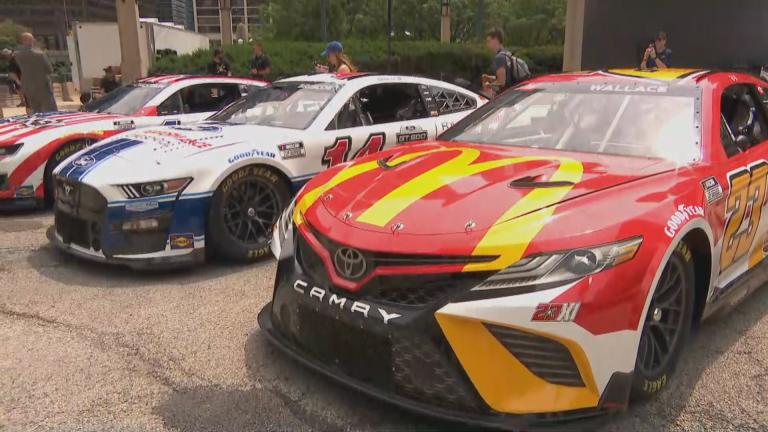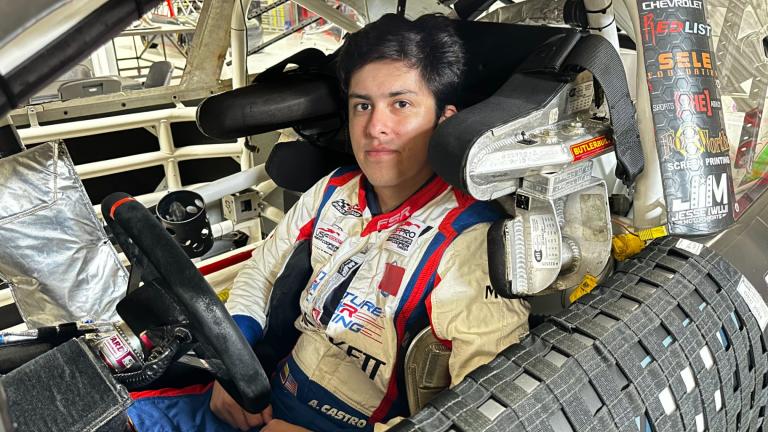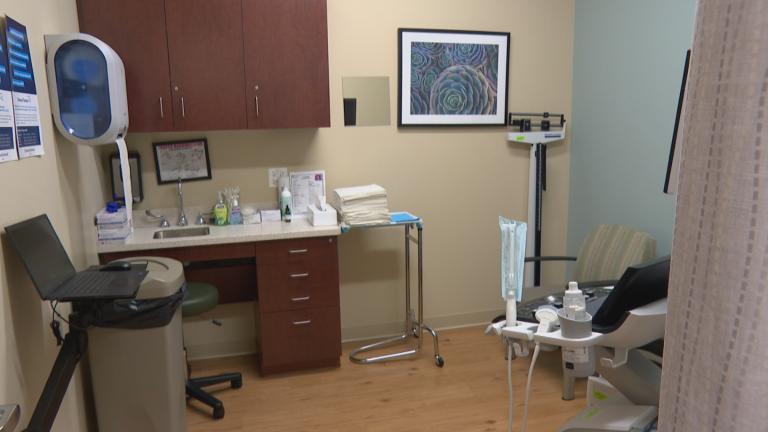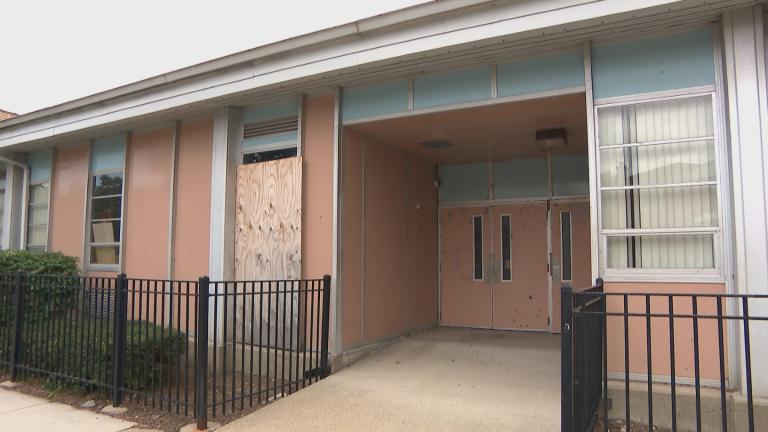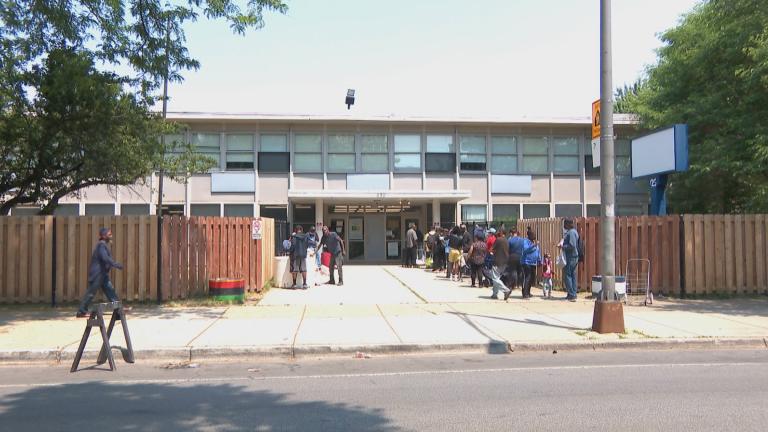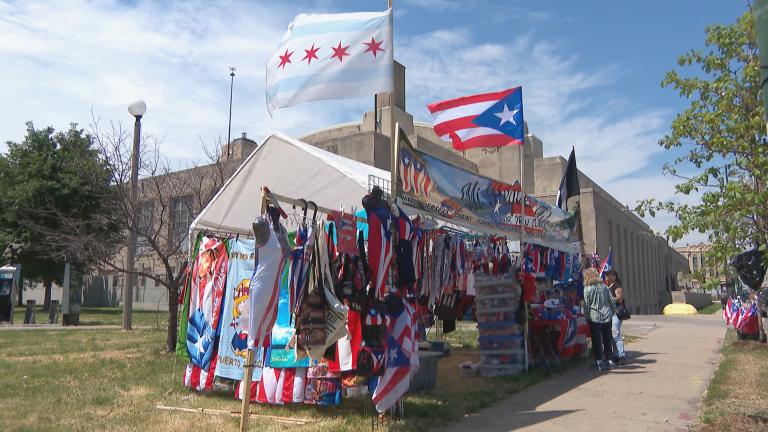South Deering is an industrial community on Chicago’s Southeast Side, about 18 miles south of the Loop.
The community of roughly 15,000 residents used to be marked by steel mills and is now lined with other plants. It’s also home to establishments like Calumet Bakery, Skyway Lanes and L&G Restaurant.
South Deering is also the area in which a metal scrapping company is trying to open a new facility, a move that’s become point of controversy not just on the Southeast Side but across the city.
Thursday marks day 15 of a hunger strike protesting Reserve Management Group’s bid to shut down Lincoln Park metal scrapper General Iron and open a facility on the Southeast Side, which would be named Southside Recycling. Protesters are calling on the city to deny the bid.
Now, the Lightfoot administration is asking the Environmental Protection Agency for guidance on the permit.
Chuck Stark, a biology teacher at George Washington High School, which is located across from the proposed recycling facility, says it’s a prime example of environmental racism.
“Taking a known polluter from an affluent part of the city and moving it to a predominantly Latinx and Black neighborhood is a clear example of that and whether it’s intentional or unintentional, it’s still … you have this community that is paying the cost of something that other people get to benefit from,” Stark said. “When you constantly push a community to the point where you stop listening – you don’t listen, you don’t listen, you don’t listen – it’s like, people are going to find ways to be heard and that’s why we’re here at this point.”
Stark was among the first protesters on the hunger strike, which has grown and gained the attention of public officials. He says after traditional routes like writing letters and attending meetings didn't get officials' attention, this seemed like the only option.
While the city hasn't directly responded, Stark says he knows they're listening.
Maritza Darling-Ramos, who grew up on the Southeast Side, joined the strike on Monday.
“We have been known to be a neighborhood of the steel mills back in the day, and because of the steel mills we had a lot of contaminants in playgrounds, in backyards and we already have factories that are here polluting our neighborhood, so we don’t want to add on another one,” Ramos said.
10th Ward Ald. Susan Sadlowski Garza, whose ward includes South Deering, says she is humbled by the hunger strike.
“People have to understand that this action was generated because people felt like they were not being heard,” Sadlowski Garza said. “No one should have to starve to be heard.”
Video: Watch our full interview with Ald. Susan Sadlowski Garza.
Peggy Salazar, of the Southeast Environmental Task Force, says it’s important to look at the cumulative impact the industrial plants have on the Southeast Side.
“We keep saying that the industry that’s here is polluting industry,” Salazar said. “We are zoned for dirty industry. Dirty industry equates to polluting industry. Every time they add something to what’s already here, it just intensifies those effects. That’s why we’ve been saying we don’t need anymore.”
The parent company for the new Southside Recycling facility declined an invitation for an interview, but an RMG spokesman appeared on “Chicago Tonight” last week. He said extra steps have been taken to control pollution like a “capture and control system, a filter, a thermal oxidizer that burns off volatile organic compounds, explosive prevention devices and a wet scrubber that removes harmful particulate matter and volatile organic compounds from its emissions stream.”
Midwest outreach manager at the Natural Resources Defense Council Gina Ramirez says the day-to-day impact of living near so many industrial plants looks like rolling up car windows when driving by certain areas and reporting odors.
“It’s really unfair the amount of health disparities we’ve had to experience here, just because we’re in a lower income Black and Brown community,” Ramirez said. “The health impact, you’re not seeing those kind of health issues on the North Side.”
The Chicago Department of Public Health acknowledges the concern around the expansion of the facility on the Southeast Side, and shares concerns of communities “zoned for heavy industrial use,” including the Southeast Side.
“The CDPH created new and more stringent recycling rules to incorporate several significant requirements, including air and noise assessment and monitoring, as well as other requirements to minimize dust and pollution,” a spokesperson for the Chicago Department of Public Health said in a statement. “Any proposed facilities - including RMG/Southside Recycling - that wish to operate in the City of Chicago will be required to meet these high standards. Otherwise they will not be allowed to obtain their required permitting.”
There is currently a pending federal complaint, purporting residents’ civil rights were violated when the city agreed to allow RMG to move to the Southeast Side.
Sadlowski Garza is named in the complaint.
“Now, I can’t talk about any of this,” Sadlowski Garza said. “It’s very hard for me. It’s a bad situation to be in.”
Video: Watch our full interview with Peggy Salazar.
Nearby, at the Chicago Health Medical Center’s East Side location, Dr. Ronald Hickombottom says his top health concern these days: Getting people vaccinated for the coronavirus.
He says there are two types of patients: Those who are enthusiastic and can't wait to get it, and others he's trying to convince.
“The biggest thing that we’re hearing is that they just don’t trust the vaccine right now. They say it’s too new, could have side effects. And you know, I try to let them know that it’s basically similar to the flu vaccine,” Hickombottom said. “I let them know that I had the vaccine. Still here, talking and trying to treat patients.”
The juxtaposition of the industrial community in South Deering, and the significant green space on the Southeast Side, is evident in South Deering's Big Marsh Park.
It used to be a residential and commercial dumping site.
“Lots of slag, which is a byproduct of the steelmaking industry, was dumped over the course of several decades. The park district comes in. After they assess what type of debris are still there, they clean up the site – sometimes we need to cap certain spaces to make them safer for the public and for nature to return – and then we go through a process of actually reintroducing native plants, trees,” said Stephen Bell of Chicago Park District.
Today, the Chicago Park District and Friends of Big Marsh Park are working to revitalize the space and bring it back to its natural habitat, including by reintroducing native plants.
Projects in development for the park include a Ford Calumet Environmental Center, camping site and building up a hill for mountain bike trails.
“Think of it as something like a linear skate park that’s really designed for anything with wheels. So it’s really designed with BMX and mountain bikes in mind, but roller skates, rollerblades, skateboards, all these are welcomed on it. We wanted to get something that was more four seasons appropriate and that also encouraged both beginners and experts to spend more time at Big Marsh, just enjoying the space,” said Paul Fitzgerald, executive director of Friends of Big Marsh Park, which works with the Chicago Park District to fundraise and engage the park’s community.
Friends of Big Marsh is working to foster youth excitement for getting around biking with a joint After School Matters program: Bike Ambassadors. Teens learn to ride, repair and build bikes.
Sixteen-year-old Maria Tennyson says before joining she didn't like biking nor did she know there was a huge green space in her neighborhood.
“Down the way that the Big Marsh is, I only saw trucks coming down from that side. So when we actually went down there it was like ‘oh my God,’ that’s a big old space that’s down there, that I could have been going down there this whole time and having fun with my friends,” she said.
One of South Deering's most famous establishments is Calumet Fisheries.
Beloved by everyone including Anthony Bourdain for its fried and smoked shrimp and other fish.
It's right on the 95th Street bridge that Jake and Ellwood jumped in the “Blues Brothers.”
“It started out with a business that two brother-in-laws bought way back in 1942, so they kinda continued smoking fish the traditional way. There’s an open flame smokehouse right next door. Our way of smoking is more the historical way,” said store manager Javier Magallanes
Calumet Fisheries has always been takeout and cash only. The store manager says COVID-19 didn't change standard operating procedures much, but they do take the coronavirus seriously.
In July, beloved store manager Carlos Rosas died after contracting COVID-19.
“Chicago Tonight” is expanding its community reporting. We’re hitting the streets to speak with your neighbors, local businesses, agencies and leaders about COVID-19, the economy, racial justice, education and more. See where we’ve been and what we’ve learned by using the map below. Or select a community using the drop-down menu. Points in red represent our series COVID-19 Across Chicago; blue marks our series “Chicago Tonight” in Your Neighborhood.Community Reporting Series

